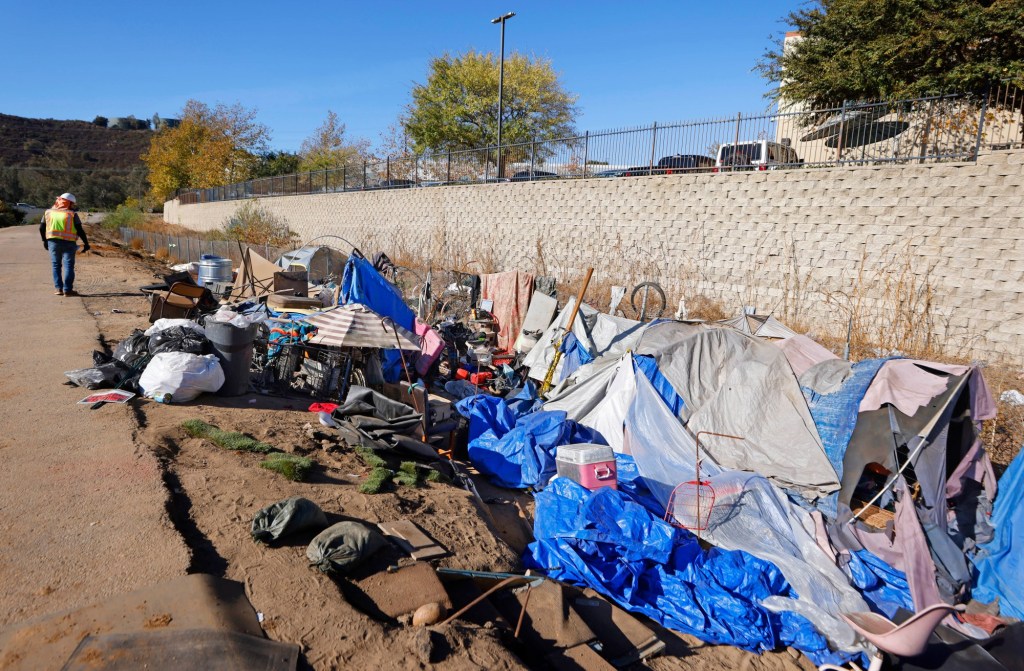President Trump’s recent executive order on homelessness is an inhumane response to one of our nation’s most urgent social challenges. Titled “Ending Crime and Disorder on America’s Streets,” the executive order falsely claims that the “overwhelming majority” of unhoused Americans are drug addicted, mentally ill and dangerous criminals. Based on this flawed and damaging premise, it prescribes imprisonment, institutionalization and forced mental health treatment as solutions.
Let’s be clear: This is not a public safety strategy — it’s a deeply flawed response that harms our most vulnerable, unhoused and most often disabled neighbors. The data simply does not support the claim that most people experiencing homelessness are drug addicted, mentally ill criminals.
The No. 1 reason people become homeless? They simply cannot afford housing. The most common characteristics among people experiencing homelessness? Childhood trauma and poverty. These are people who have already experienced significant hardship and abuse as children, and disproportionately include people of color, members of the LGBTQ+ community, older adults and veterans.
Instead of investing in proven, humane solutions, the executive order directs federal resources toward a costly and harmful system of incarceration, psychiatric hospitalization and forced mental health treatment. Even effective harm-reduction — life-saving approaches that keep people with substance use disorders alive until they’re ready for treatment — are explicitly targeted for elimination. These changes risk more suffering, more death and fewer pathways to recovery.
There is a better way. We’ve seen it work before. During and after the Great Recession, the Veterans Administration cut veteran homelessness nationally by more than 50% by expanding access to affordable housing and offering person-centered, compassionate services. They empowered disabled, homeless veterans to rebuild their lives with dignity and support.
Locally, we’re seeing this work again. My organization, Interfaith Community Services, recently joined with other community-based nonprofit organizations and the cities of Oceanside and Carlsbad to address one of the largest and most seemingly intractable homeless encampments in North County. With a combination of state funding and local private donations, we systematically, professionally, and compassionately engaged each homeless resident. In the first completed section of the encampment, 90% of unsheltered residents accepted assistance and are now living in permanent housing with the right level of services and support for their needs.
This approach isn’t just more humane, it’s also more cost-effective. Providing housing and support is far less expensive than jailing or institutionalizing someone, and it leads to far better outcomes. But success requires partnerships: government, nonprofits, businesses and community members working together with shared purpose and sustained investment.
In San Diego, these partnerships are making a difference. In June of this year alone, 1,240 overcame homelessness into permanent housing locally. That is 1,240 stories of success in just one month. But unfortunately, in that same month, 1,037 people became homeless for the very first time — driven by rising housing and living costs, and an exceedingly tight rental market. Thankfully for the 1,037 people who became homeless for the first time last month, local businesses, government agencies, community organizations and people of compassion are working together to help them regain housing and rebuild their lives.
What we have is not purely a homelessness crisis, rather, it’s a homelessness prevention crisis. And we can’t solve it by criminalizing poverty. We solve it by addressing root causes and helping people find stable footing.
At Interfaith, we will continue to lead with compassion. We will continue to offer real solutions. And we continue to reject policies that harm, dehumanize or abandon people in need.
If you share these values — we invite you to join us in making our streets safer, building stronger communities and creating a more humane future for all.
Anglea is CEO of Interfaith Community Services. He lives in Escondido.
